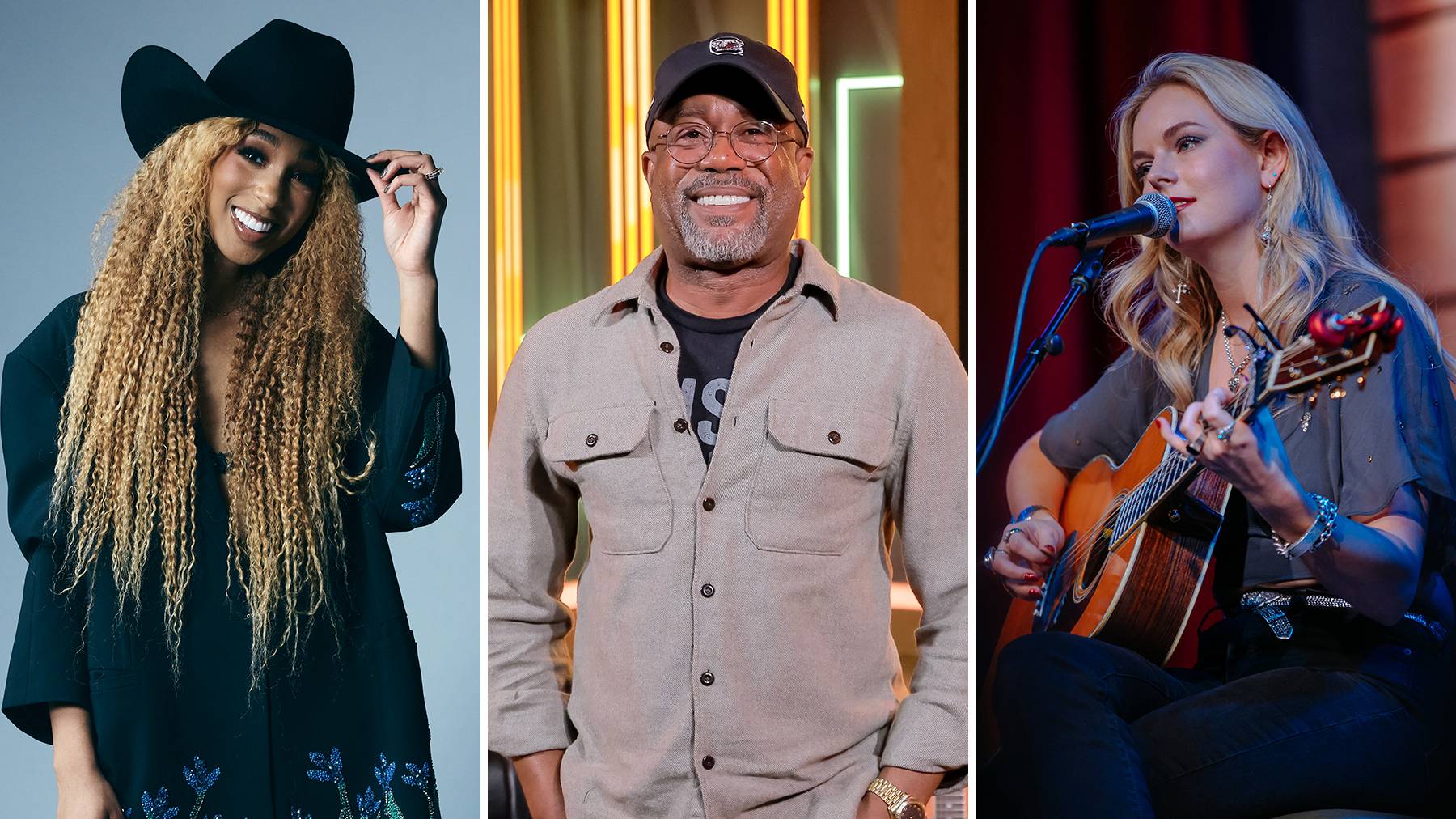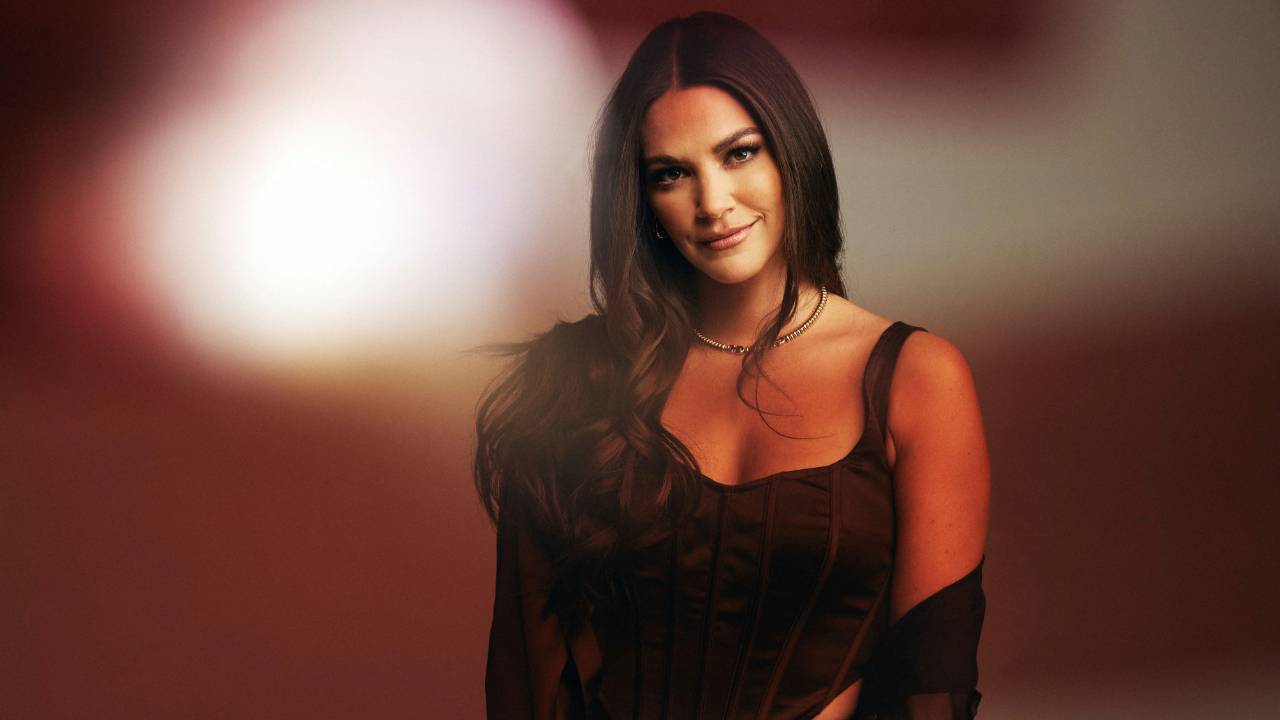Waylon’s Buddy: Jennings Never Forgot His Mentor
“If anything I’ve ever done is remembered,” Waylon Jennings told CMT.com in 1999, “part of it is because of Buddy Holly.”
Jennings, who died Wednesday (Feb. 13) in Chandler, Ariz., at age 64, said the main thing he learned from Holly was attitude. Holly refused to compromise when it came to his music. Jennings also stayed true to his musical instincts and made a number of landmark recordings that helped shape the course of country music. Known for his rugged individualism, Jennings was dubbed an outlaw in Nashville because he demanded the freedom to record the material he wanted to record with the musicians of his choice.
“Buddy was the first guy who had confidence in me,” the Country Music Hall of Fame member said. “Hell, I had as much star quality as an old shoe. But he really liked me and believed in me.”
Jennings’ big break came when he joined Holly's band, and one of the turning points in his life and storied career was his decision to give up a seat on the ill-fated flight that took the lives of Holly, Ritchie Valens and the Big Bopper on Feb. 3, 1959. That fateful evening has been referred to as “the day the music died,” the symbolic end of 1950s rock 'n' roll.
Jennings told CMT.com that the brutal crash left scars that still haunted him 40 years after Holly’s death. Jennings never came to terms with his last words to Holly, the joking refrain, "I hope your ol' plane crashes."
Jennings, who named a son after Holly, began his career in the mid ‘50s as a Holly protégé. The two became close when Jennings was a radio jock and budding musician in Texas.
"I was working as a disc jockey at KLLL in Lubbock,” Jennings recalled. “Buddy would come up and hang out with me when he was in town. I had known him for a long time from talent shows we'd do around Lubbock.”
In 1958, Holly financed, produced and played on Jennings' first recording -- a rollicking, Texas-flavored version of the Harry Choates Cajun classic, "Jole Blon."
Holly’s success gave Jennings and other local musicians hope, Jennings explained in his 1996 autobiography, Waylon. He wrote: “We'd lay back in the studio and play guitars, and Buddy would tell us stories. Our eyes would bug out of our heads because he'd been all over the world. He would talk about people like the Everly Brothers and Jerry Lee and Elvis.”
When he was 21, Jennings was tapped by Holly to play bass in Holly's new band on a tour through the Midwest in early 1959. Holly also hired guitarist Tommy Allsup and drummer Carl "Goose" Bunch for the "Winter Dance Party" tour.
"One day Buddy brought this bass guitar in and pitched it in my lap and said, 'You've got two weeks to learn to play it,'” Jennings told CMT.com. “I never took the time to figure it out. I just memorized every song Buddy ever recorded. I was terrible. I played too loud and broke the amplifier speakers. I was scared to death. In later years I got to where I could play a little bit, but at that time I was over my head. He'd have been better off with a monkey back there instead of me.”
The rock 'n' roll package tour starring Holly, Valens, J.P. "Big Bopper" Richardson, Dion & The Belmonts and Frankie Sardo was to be three weeks of one-night stands, beginning in Milwaukee on Jan. 23 and winding up in Springfield, Ill., on Feb. 15.
Crisscrossing the upper Midwest in wretched winter conditions, the tour bus engine froze up while making its way through northern Wisconsin on the last day of January. As a replacement, the troupe was given a converted school bus. A couple of days later, in Clear Lake, Iowa, Holly asked Jennings and Allsup if they wanted to go with him on a charter flight. He planned to fly ahead of the troupe 400 miles to Minnesota, to get caught up on sleep and laundry before the next night's show.
The Big Bopper asked Jennings for his spot on the four-seat plane, while Valens and Allsup flipped a coin to see who would fly and who would travel on the cold, cramped bus.
"Big Bopper weighed about 300 pounds, and he had trouble sitting on those bus seats, and he couldn't get any rest,” Jennings remembered. “He came to me and said, 'I have the flu, I'm very sick and tired and I haven't been able to sleep. Would you mind if I took your place on the plane?'”
Holly, Valens, the Big Bopper and the pilot, Roger Peterson, boarded the single-engine plane just past midnight. The aircraft flew into a blizzard and crashed near Mason City, Iowa.
"I remember the last time I saw Buddy,” Jennings said in his interview with CMT.com. “He had me go get us some hot dogs. He was leaning back against the wall in a cane-bottom chair and he was laughing at me. He said, 'So you're not going with us tonight on the plane, huh? Well, I hope your ol' bus freezes up. It's 40-below out there and you're gonna get awful cold. So I said, 'Well, I hope your ol' plane crashes.'
“I was so afraid for many years that somebody was going to find out I said that. Somehow I blamed myself. Compounding that was the guilty feeling that I was still alive. I hadn't contributed anything to the world at that time compared to Buddy. Why would he die and not me? It took a long time to figure that out, and it brought about some big changes in my life -- the way I thought about things.”
Holly was the first to believe in Jennings’ talents and the person who encouraged him to be a musical individual, a lesson Jennings carried with him throughout his legendary career.
Jennings wrote in his autobiography, “[Buddy] had a dose of Nashville where they wouldn't let him sing it the way he heard it and wouldn't let him play his own guitar parts. Can't do this, can't do that. 'Don't ever let people tell you you can't do something,' he'd say, 'and never put limits on yourself.'
“Years later, I'd be in the studio, and the track would really get in the pocket and feel good, and I'd hear those Nashville producers saying scornfully, 'Man, that sounds like a pop hit.' And I'd remember Buddy talking to me, telling me they thought he was crazy, as that freezing bus moved down the highway from Green Bay, Wisc., to Clear Lake, Iowa.”





